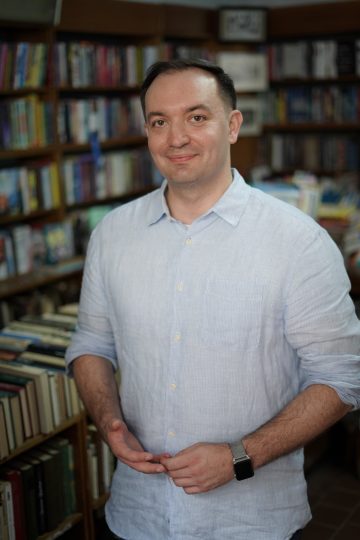Crimea will be free

Maksym Kyiak
Ph.D., Senior Researcher
Foreign Policy Council “Ukrainian Prism”, Kuras Institute
Kyiv, Ukraine
This February has marked the eighth anniversary since Russian forces seized government buildings in Crimea and occupied the Crimean peninsula. Immediately after the events of February 27, 2014, Russia significantly strengthened its military control over Crimea by illegally deploying more troops and further forcing out the Ukrainian military. The events 2014 divided not only the history of the present-day independent Ukraine into “before” and “after” the temporary occupation, but also have led to the Russian full-scale war on Ukraine in 2022.
During eight years, Russian authorities have committed numerous human rights violations. According to Ukrainian human rights organizations, at least 140 Ukrainian citizens, the majority of which are Crimean Tatars, are being held in prison as part of politically motivated criminal proceedings. Due to the Federal Security Service of the Russian Federation accusing Ukrainian citizens of sabotage, storing weapons and spying for the Ukrainian special services, at least 18 people have been imprisoned in trumped-up cases. Among them, there is Vladyslav Yesypenko, a sentenced Ukrainian journalist, freelance correspondent of Radio Svoboda. In September 2021 it has been already 2 years since the last release of political prisoners. Since the last exchange in September 2019, the Russian Federation has not released a single political prisoner from Crimea.
One of the latest detentions took place after the inaugural summit of the Crimean platform that had been held in Kyiv on August 23. Based on the Summit results, the heads of 46 delegations adopted a Declaration on the establishment of the Crimean Platform as a consultative and coordination format to end peacefully the Russian Federation’s occupation of Crimea and Sevastopol and to restore Ukraine’s control over the territory in full compliance with international law. Russia has repeatedly stated that it will not allow the Crimean Platform to become operative, blackmailing and threatening countries that supported the Summit.
Given that for the years of occupation of the peninsula, Russia has developed a system of politically motivated persecution of all those who disagree with the occupation of Crimea, the persecution of Crimean residents for their support of the Crimean platform could be a new wave of fabricated criminal cases. Illegal searches, abductions, and a steady increase in the number of political prisoners in Crimea show that efforts by Ukraine and the international community turned out to be insufficient to end arbitrariness on the occupied peninsula. Russia continues to despise international law, and therefore the restoration of the rule of law and respect for human dignity in Crimea can happen only if the peninsula has been de-occupied.
Russian Federation is systematically ruining cultural heritage and national identity of ethnic groups in the temporary occupied Crimea. The militarization of youth in the Crimea is another crucial part of a purposeful policy of colonization of the peninsula, changing the national identity of Ukrainian children and promoting the cult of war by the Russian Federation. Today, Crimea has 25 regional headquarters of the Yunarmy (a military movement for youngsters in the Russian Federation). 5 thousand 628 children aged 8 to 18 years have already taken the oath of office in the ranks of the Yunarmy in Crimea. There are at least 109 cadet classes and 88 school military-oriented museums in Crimea In total, approximately 8,500 thousand children are involved in the Yunarmy movement in Crimea today.
For deoccupation of Crimea, the abovementioned Crimea Platform as an international consulting and coordination format of communication and cooperation of government, parliamentary representatives and experts was established. Within the expert dimension, the Expert Network of the Crimea Platform was created, which is a coalition of individual Ukrainian and foreign experts, Ukrainian, foreign and international non-governmental organizations, individual initiatives, associations, think tanks and scientific institutions. The next step in the work of the Network is to develop cooperation with experts from different countries on certain issues where international experts are more than welcome.
Eight years ago, a pearl Crimea has been brutally stolen from us. We in Ukraine always say that it is occupied only temporary and this means that in the upcoming Crimea will return home and that it finally will be free.
E-mail: maksymkyiak@gmail.com
Expert article 3217
>Back to Baltic Rim Economies 2/2022
To receive the Baltic Rim Economies review free of charge, you may register to the mailing list.
The review is published 4-6 times a year.
